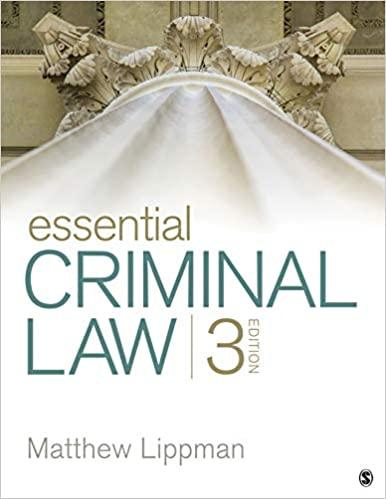Question
Carlos and Suzanne Cortez filed their petition for Chapter 7 bankruptcy on April 8, 2004. At the time of filing, Suzanne Cortez was working, but
Carlos and Suzanne Cortez filed their petition for Chapter 7 bankruptcy on April 8, 2004. At the time of filing, Suzanne Cortez was working, but Carlos was unemployed. Suzanne had reduced her work hours so that her minimum net income per month was $750. Carlos accepted a job offer a few days after the filing of the bankruptcy petition that netted him $5,986 monthly. The Cortezes' new combined net income was $6,646 per month, which exceeded their expenses by $1,325 per month. The trustee appointed to the Cortezes' case moved to dismiss their petition on the basis that it appeared that the debtors had the means to repay a substantial portion of their debts through a Chapter 13 plan. The bankruptcy court denied this motion and ruled that it was limited to reviewing the Cortezes' financial circumstances as they existed at the time of the filing of the petition and that postpetition events could not be taken into account in determining the proper chapter under which the petition should have been filed. The trustee appealed the decision to the U.S. district court.
How should this case be decided on appeal? Should postpetition events, especially those occurring within a few days of the filling, be relevant to the determination of whether a petition was properly filed? Why or why not?
[In re Cortez, 2005 U.S. Dist. LEXIS 39778 (N.D Tex.., Mar. 9, 2005).]
Step by Step Solution
There are 3 Steps involved in it
Step: 1

Get Instant Access to Expert-Tailored Solutions
See step-by-step solutions with expert insights and AI powered tools for academic success
Step: 2

Step: 3

Ace Your Homework with AI
Get the answers you need in no time with our AI-driven, step-by-step assistance
Get Started


